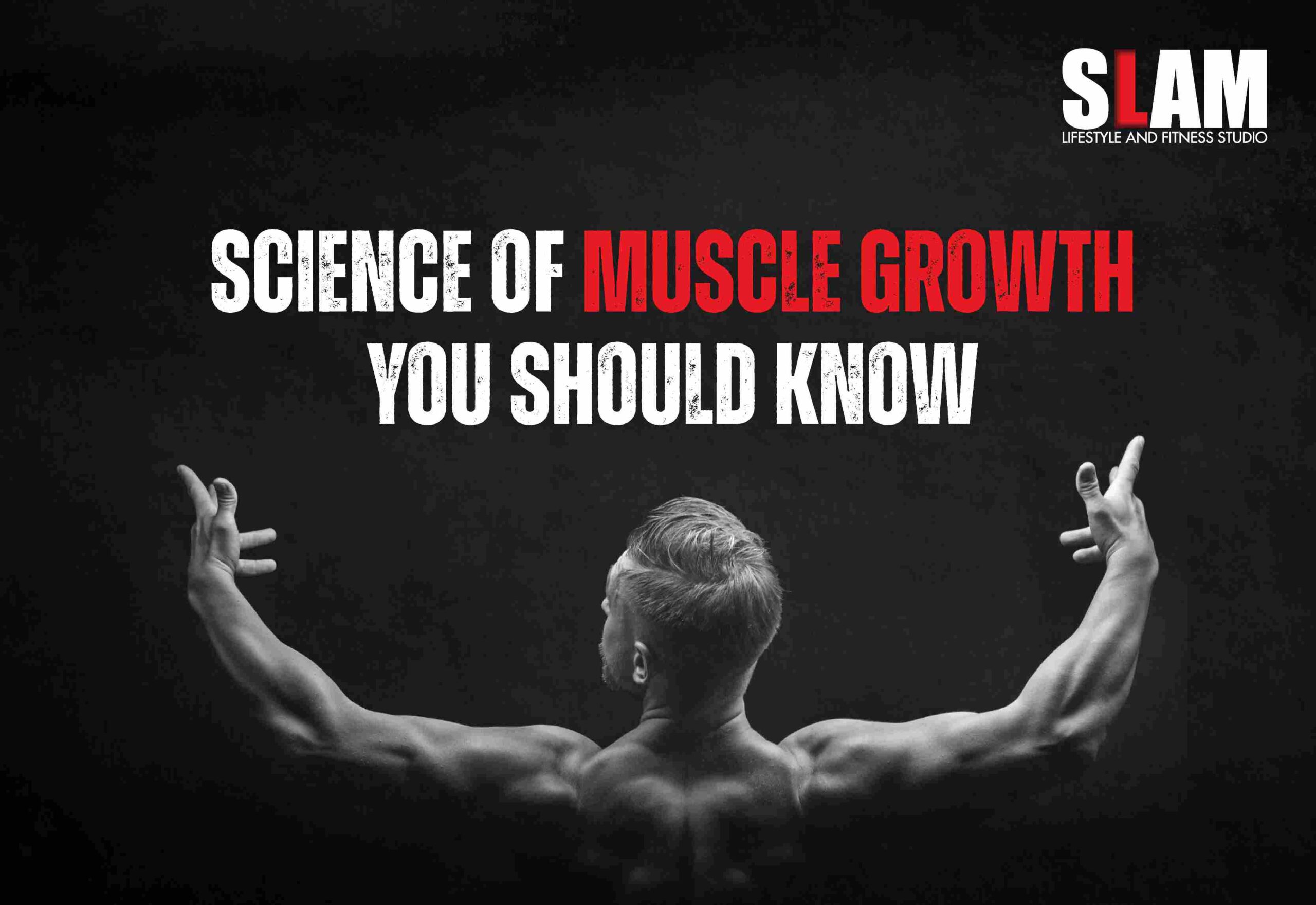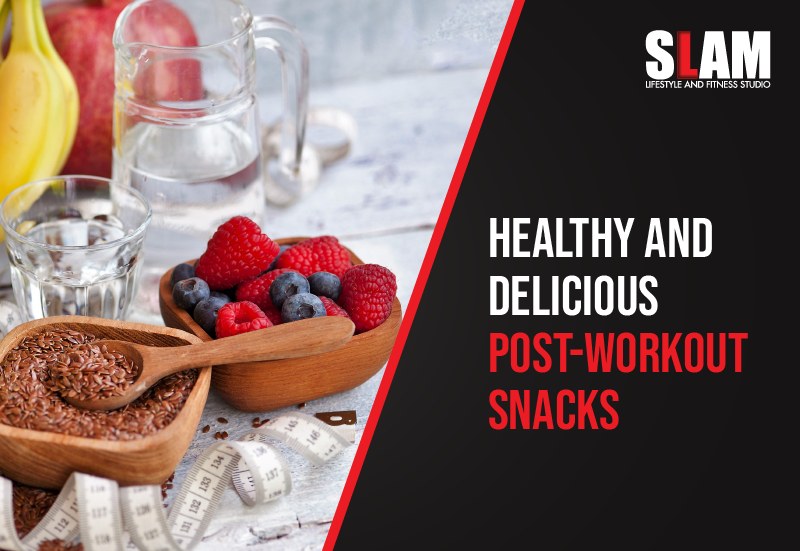Introduction
Welcome to a fascinating exploration of the science behind muscle growth! We solve the secrets surrounding the interesting science of muscle growth in this engrossing blog. Get ready to delve deeply into the cellular processes, physiological elements, and training tenets that lead to the growth of muscles.
We’ll provide you with the knowledge you need to maximise your efforts to gain muscle, from comprehending protein synthesis and the function of resistance training to delving into the idea of progressive overload and the significance of adequate recuperation. Prepare to learn the secrets of muscle growth, improve your workout methods, and start down a revolutionary path to a more powerful, chiselled body.
Science of Muscle Growth You Should Know
Muscular growth, or muscular hypertrophy as it is known in science, is a complicated process impacted by several factors. Gaining an understanding of the science involved will help you maximise your training and reach your intended goals for muscle development. Some important components are:
Protein Synthesis: Muscle growth takes place when the rate of muscle protein synthesis outpaces the rate of protein degradation. To encourage the synthesis of new muscle protein, it’s vital to consume enough protein and essential amino acids.
Progressive Overload: Resistance training gradually ups the demands placed on your muscles, encouraging them to adapt and get stronger. Increases in weight, repetitions, or intensity over time can lead to progressive overload.
Rest and recuperation: For muscles to grow, there must be enough time for rest and recovery. Muscles improve in size and strength while they are at rest as they heal and regenerate.
Hormonal Factors: Hormones that are important for muscle growth, protein synthesis, and tissue repair include testosterone, growth hormone, and insulin-like growth factor-1 (IGF-1).
Nutritional Timing: Proper dietary timing, especially before and after workouts, can promote muscle growth. Before and after workouts, eating protein and carbohydrates supplies the energy and building blocks required for muscle growth and repair.
Genetic Factors: Individual genetic makeup can affect the rate and magnitude of muscle growth. Even though some people may inherently have a better propensity for muscular growth, everyone may improve with targeted exercise and healthy eating.
Additional tips for building muscles
Keep in mind that developing muscle is a slow process and that individual outcomes may differ. Be patient, pay attention to your body, and continue to be dedicated to your fitness goals. Here are a few more pointers for you.
Resistance Training: Include resistance activities in your schedule, such as bodyweight exercises, weightlifting, or resistance band workouts. Put your attention on complex workouts that simultaneously work for several muscular groups.
Progressive Overload: Keep your muscles guessing by gradually stepping up the volume, intensity, or complexity of your workouts. By gradually increasing the workload, you can promote muscular growth and avoid plateauing.
Proper Form: To maximise muscle engagement and reduce the chance of injury, do exercises with proper technique and form. To understand the proper form for specific exercises, take into consideration training with a certified trainer.
Balanced nutrition: A balanced diet should have an appropriate amount of protein, carbs, and healthy fats. Protein is especially crucial for muscle growth and repair. Think about including meals high in protein, such as lean meats, poultry, fish, dairy, legumes, and tofu.
Sufficient Caloric Intake: Getting enough calories will help you support muscle growth by providing your body with the energy it needs. If you want to increase muscle mass, aim for a modest calorie surplus.
Rest and recovery: In between sessions, give your muscles some downtime. Prioritise rest days and good sleep in order to encourage the best possible recovery because overtraining can impede muscular growth.
Hydration: To support muscle function and general effectiveness during workouts, stay hydrated throughout the day.
Consistency: Being consistent is essential. Strive to exercise frequently and follow your training schedule. The process of developing muscle takes time and effort, so stick with your programme.
Track Your Progress: Keep a record of your exercises, strength improvements, and general development. This enables you to modify your training regimen and mark accomplishments along the way.
Slam Fitness
With unmatched discipline, Slam Fitness leads people towards their targeted fitness objectives and is the gold standard among fitness studios. For those looking to build muscle or lose weight, Slam Fitness provides an inviting atmosphere and knowledgeable assistance with a focus on achieving great results.
Our committed trainers create individualised workout plans that incorporate strength training, cardiovascular training, and nutritional advice to maximise results. Slam Fitness instils a sense of commitment and inspiration in its members by putting a strong emphasis on discipline, consistency, and accountability. Slam Fitness opens the way for people to realise their fitness objectives and unlock their full potential in a disciplined and transforming way with cutting-edge facilities and a supportive community.
Bottomline
One can take charge of their fitness journey by understanding the science behind muscle growth. One can maximise muscle growth by putting principles like protein synthesis, progressive overload, and adequate recovery into practice.
Muscle growth is made efficient and effective by utilising the power of nutrition, rest, and certain exercise methods. Keeping in mind that everybody is different and that results may vary, you may unlock your muscle-building potential and start down a revolutionary path to a stronger, healthier, and more toned physique.
FAQs
- Why are my muscles not growing?
You’re not eating enough, and more importantly, you’re not eating enough of the appropriate foods, which is one of the key reasons why you can’t gain muscle. Although everyone talks about how important protein is for building muscle, carbohydrates and lipids are also crucial.
- What is more important for muscle growth?
For muscles to expand, nutrition and exercise are both essential. While exercise promotes adaptation in the muscles, nutrition supplies the building blocks for muscular growth and repair. Both elements are crucial for maximising the potential for muscular growth because they interact in a positive way.
- Is muscle gain genetic?
Genetics can affect a person’s ability to grow muscle, affecting things like hormone levels and the makeup of muscle fibres. However, even though genetics are important, the right exercise, diet, and lifestyle decisions can still have a big impact on how muscles grow and develop.
- How to get 150g of protein per day?
Include protein-rich foods in your meals and snacks to meet your daily protein requirement of 150g. Whenever possible, include sources such as lean meats, poultry, fish, dairy, eggs, lentils, tofu, and protein supplements. For optimum absorption, spread out your protein intake throughout the day.
- What foods to avoid when building muscle?
Avoiding diets high in processed carbohydrates, bad fats, and excessive sodium is advised when trying to gain muscle. Reduce your intake of fried foods, processed snacks, sugary drinks, and refined carbohydrates. Rather, give attention to nutrient-dense whole foods, including lean meats, fruits, vegetables, whole grains, and healthy fats.



